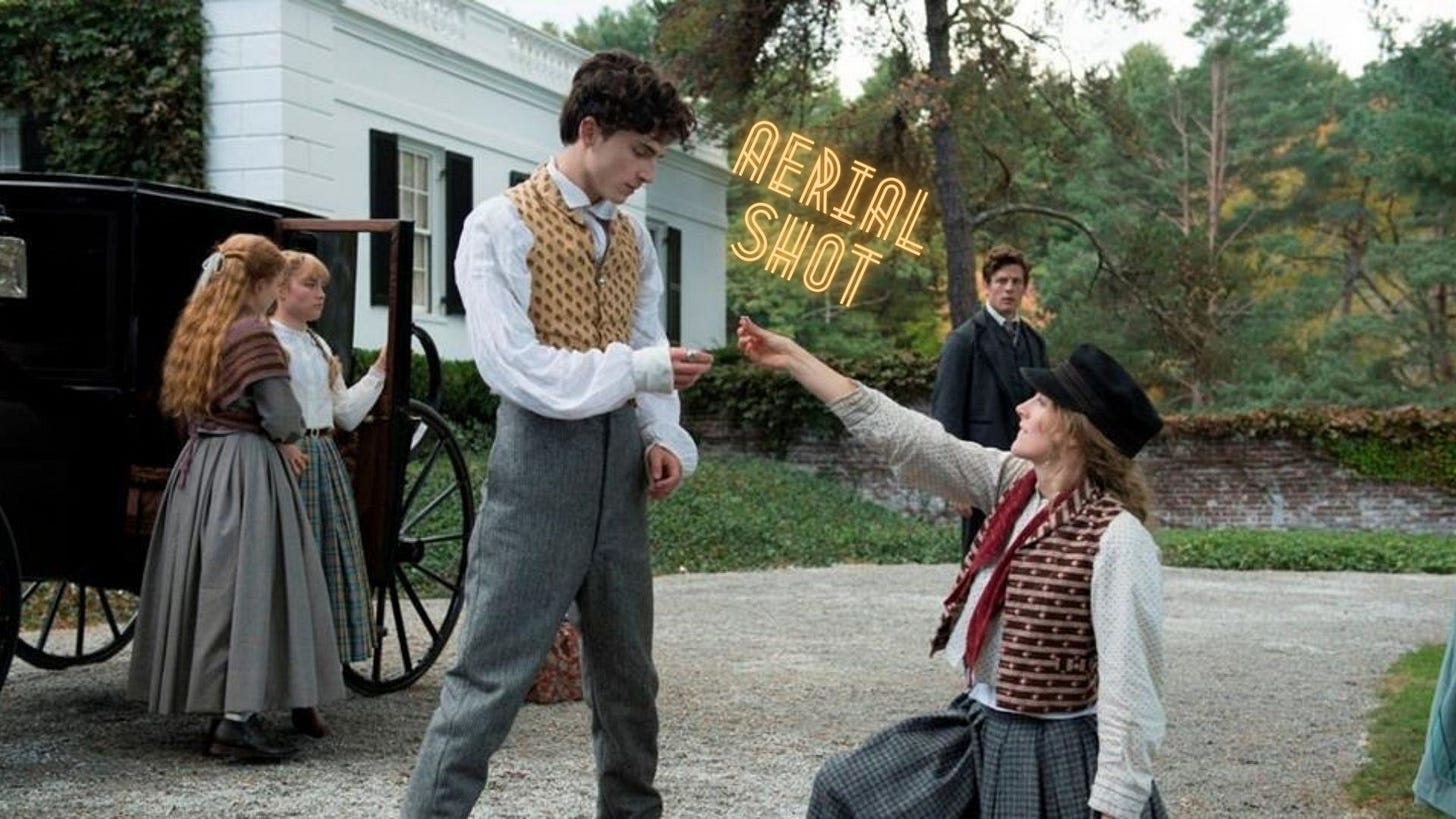I don’t really love the idea of birthday weeks. The less attention I get for being one step closer to death the better, but also this is my week and I want to write about Little Women (2019).
I had some plans to put together something (with some help) on The Creator this week, but it’s been busy and I had to wake up around 5 a.m. multiple days in a row, which is my personal hell. So that’ll come in the future at some point. In its stead, I want to extol the virtues of Greta Gerwig’s immediate adaptation masterpiece, because I watched it recently and it still fucking rules.
If you haven’t seen this one yet, what the hell are you doing? Go watch it now and come back here. I’ll wait.
*waiting*
*waiting*
*waiting*
Okay, thank you. Wasn’t that good?
Coming off of her feature debut Lady Bird, Gerwig decided to adapt Little Women, and I remember being a little bummed out. I found the personal flourishes and specific nature of Lady Bird kind of incredible and wanted her to stick to a similar milieu when it came to her next feature. The thing that I didn’t know is that I’m an idiot.
Well, I did know that, just not when it came to this distinctive case.
Looking back at it, Little Women is a natural next step for Gerwig. It’s a period piece, sure, but it’s also a dramatic story centering on young love, loss of innocence and making something of yourself in the world. She shoots it as if every sequence is the most important moment because they are. When you’re looking back at your younger self, the visualization of each moment feels more significant than ever, which is why the vignettes of Little Women (despite relatively small stakes for big-budget moviemaking) feel so big.
I read the book in college as part of a young adult fiction course, and although I didn’t see Saoirse Ronan, Florence Pugh and Timothée Chalamet as the leads, it’s the only thing that makes sense now. Each provides a gravitas and a sense of playfulness to the story. Ronan, in particular, is incredible as the self-assured, hard-headed and somewhat misguided lead who’s also too talented to fail. The constant cutting between the modern-day and the childhood anecdotes creates a sense of momentum that almost seems impossible when reading the book.
Gerwig is telling two stories simultaneously that build upon one another leading to a revelation for the protagonist and the story version of the protagonist. It’s a real undertaking to divert from the book in such a way and also makes so much sense when it comes to taking this book and putting her own spin on it.
On this rewatch, it was the Tracy Letts (Mr. Dashwood) scenes that really stood out as he’s both an editor in the actual movie and a narrator of sorts for Gerwig. He’s allowed to stand back from the action and comment on what he thinks should happen as a voice of sorts for the ignorant with Ronan’s Jo informing him on the future and what’s to come.
These scenes are both critical when it comes to reading the movie and also really, really good. Taking an outsider's POV when it comes to the romance tropes and commenting on their absurdity in real-time is a stroke of genius and leads to quite the emotional climax that always gets me.
As fun as Barbie is, I don’t think it touches the emotional roller-coaster that is Little Women (or even Lady Bird). There’s a sense of ingenuity in the Little Women script that is so Gerwig that it almost hurts. You can see her love for all of the characters and her desire for them to land on their feet from beginning to end without sacrificing the pain that comes with this story.
Even Amy March, a character partially sidelined and villified in the original book, becomes more three-dimensional here. Yes, she still burns Jo’s book and has a selfish streak, but by the end of the story, we (or at least I) sympathize with Amy and understand her line of thinking. Don’t we all have a bit of a selfish streak in us?
This was a lot of rambling, but that’s what this movie deserves. It’s so good. That’s it. That’s what I’ve got this week.




